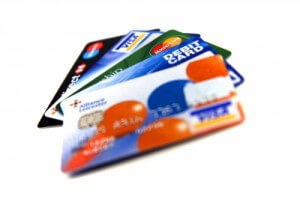Debt can when done properly benefit you as it can help you to buy a home, buy a family car, invest in education and improve your standard of living. Debt however can have disastrous effects if you begin to borrow too much money. Some of these problems include:
- Running out of money
- Unable to deal with unexpected costs
- Being unable to take part in social activities
- Stress and depression
- Plus much more
There are four ways in which you can gain control of your finances and reduce your debt:

Reduce the amount of money you spend
In order to reduce the amount of money you spend you will need to gather or put together a list of any expenses you have including your mortgage, food shopping, phone bill, fuel and clothes etc. Once you have a list of everything your next job is to go through the list and sort out the items into one of three categories.
- Fixed items, for example your mortgage
- Needed items, for example your phone bill
- Items that are forever changing, for example clothing
Once all of your items are sorted into their categories you should be able to go through your third list and cut down on the items. Your aim is to reduce as many of the items as possible. You should also try and reduce your expenses in your second list if your debt is extremely high. You could for example go onto a cheaper phone tariff.
Once you have done all of this you should set a monthly budget for yourself so that you are aware of exactly what you can spend and what you are spending.
Increase your income
There are a number of ways that you can increase the amount of income you receive. Below are some examples:
- Ask your current employer if there is any overtime available
- Ask your employer for a pay rise
- Consider taking in a lodger if you have the space or sublet any other property you have
- Take on another job for example an evening or weekend job
Rearrange your debt
When trying to reduce your debt think about ways in which you can restructure the debt you already have to benefit you. Some examples include:
- Transferring as much of your debt as possible into your mortgage, this is generally the cheapest form of debt and should therefore be that last one to be paid off.
- Replace any of your existing loans with loans that have lower interest rates, loans that are secured as this will reduce your interest rate, loans that allow you to repay them back over a longer period of time and consolidated loans.
- Discuss and agree with your current loan supplier an extended time to repay your loan.

Rearrange your possessions
Rearrange your assets to reduce your debt. You can do this by:
- Moving into a smaller and cheaper house
- Selling any possessions you have that are unnecessary, for example you could reduce the number of cars you have
- Use any savings or investments you might have to pay off your loans
